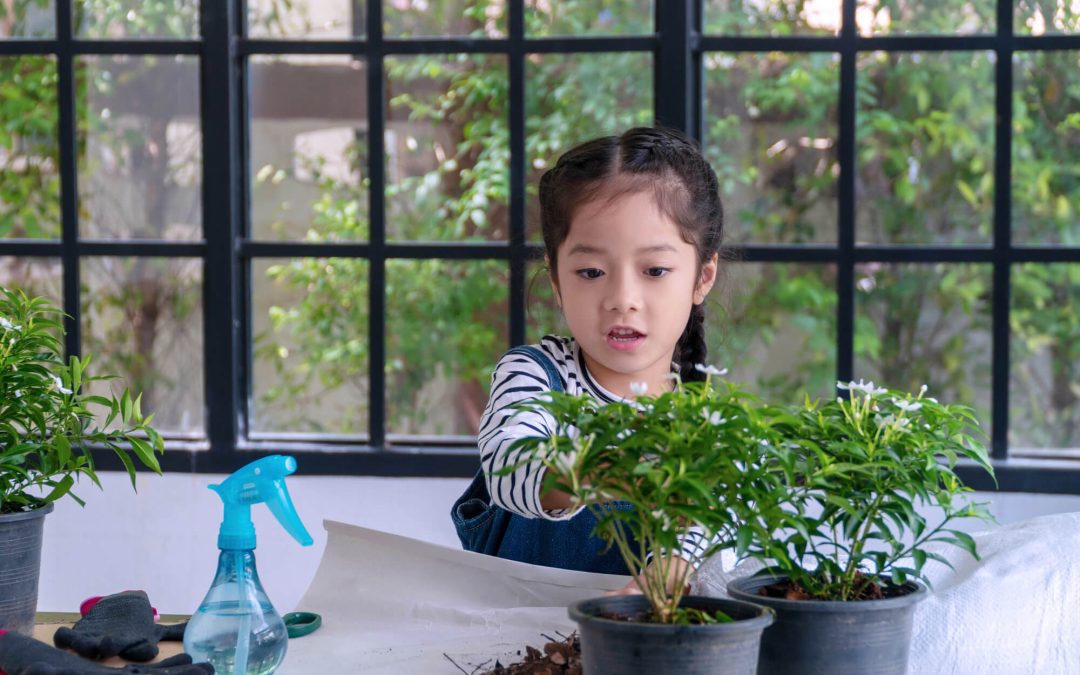Gardening reaps more benefits than just the food you grow; it enables you to connect with nature and be self-sustainable. When you get your kids involved, it ignites their curiosity about the natural world. Here are some tips for gardening with kids to make it a fun and educational experience for the whole family.
The Benefits of Gardening with Kids
Educational Opportunities: Gardening provides a hands-on learning experience for kids. They can learn about plant life cycles, ecosystems, and the importance of biodiversity. From seed to harvest, children can witness the miraculous journey of a tiny seed transforming into a flourishing plant, fostering a sense of wonder and appreciation.
Healthy Habits: Gardening encourages kids to spend time outdoors, soaking up vitamin D and getting exercise as they dig, plant, and weed. It also promotes healthy eating habits by giving them access to fresh fruits and vegetables straight from the garden.
Responsibility and Patience: Taking care of a garden teaches kids responsibility and patience. They learn to water plants, pull weeds, and monitor growth, developing a sense of ownership and pride in their accomplishments. Gardening also teaches them that good things take time, as they eagerly anticipate the fruits of their labor.
Stress Relief and Mindfulness: Gardening has therapeutic benefits for kids, helping them unwind and connect with nature in a world often filled with screens and distractions. Tending to plants can be a calming and meditative activity, teaching children the importance of mindfulness and being present in the moment.
Tips for Gardening with Kids
Start Small: Begin with simple plants like sunflowers, tomatoes, or herbs that are easy to grow and maintain. This allows kids to experience success early on and keeps them engaged and excited about gardening.
Make it Fun: Incorporate games, storytelling, or creative projects into gardening activities to make them more enjoyable for kids. For example, turn weeding into a treasure hunt or create a fairy garden with miniature houses and decorations.
Provide Tools and Gear: Invest in child-sized gardening tools and gear to make gardening more accessible and safe for kids. Let them choose their own colorful gloves or watering cans to personalize their gardening experience.
Encourage Exploration: Allow kids to explore and experiment in the garden, even if it means making mistakes along the way. Gardening is a journey of discovery, and mistakes provide valuable learning opportunities for children to problem-solve and adapt.
Celebrate Successes: Celebrate milestones and successes in the garden, whether it’s the first sprout poking through the soil or the first ripe tomato of the season. Acknowledge their efforts and achievements to boost their confidence and motivation.
Gardening with kids nurtures their physical, emotional, and intellectual development. By involving children in gardening from an early age, we can cultivate a lifelong love of nature, foster important life skills, and create cherished memories that will last a lifetime. So grab your shovels, roll up your sleeves, and get ready to cultivate joy in the garden with your family.
Home Gardening FAQs
How often should I water my home garden?
Watering frequency depends on factors such as plant type, weather conditions, soil moisture levels, and container size. Generally, it’s best to water deeply and infrequently, ensuring that the soil is evenly moist but not waterlogged. Regular monitoring of soil moisture is essential to prevent both overwatering and underwatering.
What are some common challenges in home gardening?
Challenges in home gardening may include pest infestations, diseases, weeds, soil quality issues, and adverse weather conditions. However, many of these challenges can be managed effectively with proper planning, maintenance, and knowledge.
Do I need a large space to start a home garden?
Not necessarily. Home gardening can be adapted to fit any space, whether it’s a small balcony, a windowsill, or a backyard. Container gardening, vertical gardening, and raised beds are popular options for limited spaces.
How do I get started with home gardening?
Begin by assessing your available space, sunlight exposure, and climate conditions. Then, select suitable plants, prepare the soil or containers, and acquire necessary tools and supplies such as seeds or seedlings, fertilizer, and watering equipment. Consider researching or consulting local gardening resources for guidance.
Advanced Termite and Home Inspections offers inspection services to homebuyers and sellers in Eastern NC. Contact us to request an appointment.

